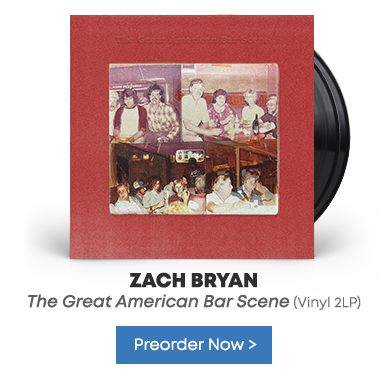In the late 80s film Who Framed Roger Rabbit, redheaded cabaret singer Jessica Rabbit famously intoned, "I'm not bad. I'm just drawn that way." It's partly played for a laugh, as Rabbit is an animated character. But the line also implies she's simply wearing the costume of a femme fatale. Playing a role is not just an actor's game; it's also a musician's gambit. This week sees the release of a new album, Lust for Life, from pop vixen Lana Del Rey, whose young career has been marked by songs that chronicle a vapid and decadent lifestyle. Her slowly enveloping ballads seem permanently placed in an episode of "Twin Peaks," bringing the listener into a dark, claustrophobic world. To celebrate the release of Del Rey's new set, we look back at five artists who shine a light on pop's shadows.
Nick Cave
Nick Cave can comfort and confront, often in the span of a single song. "Close your eyes little world, and brace yourself" he sings at the start of last year's Skeleton Tree, a harrowing work that deals with love, loss, and grief. The line could serve as a warning or a dare – a challenge for life to throw whatever it can his way. Bring it on, for there's drama of murderous and biblical proportions in Cave's music, from the lecherous lust of his rough-around-the-edges rock n' roll fare with Grinderman to the everyday sins populating his compositions with the Bad Seeds. The latter ensemble can be as heavenly soft as it is wickedly ferocious, as evident by the band's take on "Stagger Lee," hellishly evil and violent, or the romantic albeit cynical "Distant Sky." This is music that stares straight into the abyss, but which also yearns to wrestle with it and come out on top.
Lou Reed
Del Rey said in an interview that Velvet Underground founding member passed hours before he was supposed to record with the singer for her 2014 album Ultraviolence. Ultimately, she namechecks him in the song "Brooklyn Baby." Yet Reed left behind a template, one that hundreds, if not thousands, of artists have followed. It shows how to deal with the grimier sides of life without glamorizing them. When Reed sang the casual and confident "Walk on the Wild Side," it served as a cool nod to those who live on the fringes. Wild? Not all the characters we meet, but Reed treats the unconventional with respect. It's as if he had the eye of a reporter, which is similar to how Reed approaches the tense and frighteningly descriptive "Heroin," where a viola haunts a rushing guitar to capture the euphoria and despair tied to the illegal substance.
Kate Bush
Enigmatic British artist Kate Bush is often closely aligned with Lorde, and rightly so. The two share a penchant for the fragile and the otherworldly. Yet the offbeat realms in which Bush's songwriting often hovers remain largely unparalleled. While her songs occasionally have a warming, pillowing effect, dig deep and you're sure to find something unsettling. Check "The Red Shoes," where familiar old-world instruments are urgently worked to mirror the fervent obsession of the song's subject. On "King of the Mountain," Bush imagines an alternate reality where Elvis Presley still lives. Only the arrangement's soft churn implies that world is more a nightmare than a dream. Odder still is the Gothic symphony of "Hammer Horror," where a soul can get haunted by its own ego. In Bush's landscapes, a disconcerting shadow lurks around every corner.
The Weeknd
Occasional collaborators, Del Rey and the Weeknd approach coldly detached hedonistic lifestyles from different genres. On last year's Starboy, the Weeknd (aka Abel Tesfaye) channels the work of Michael Jackson and Prince, then puts it through a disquieting psychedelic haze. A song such as "Party Monster" isn't a celebration, but an addict's confessional. Despite its soft disco tones, even the slinky, Daft Punk-assisted "I Feel It Coming" comes with a compulsive underbelly – less a love song, more a lesson in coercion. The Weeknd's career is marked by such contrasts. His songs are built for a club, but the message often chases after something more solitary. See "Can't Feel My Face," which equates a drug addiction with a steamy love affair. It's difficult to guess which one the Weeknd values more, but the glistening, sugarcoated production makes it go down easy.
David Bowie
You can draw a straight line from David Bowie's penchant for theatricality to that of Del Rey. It's clear both artists like to play a role. And both like to toy with a listener's emotions. On 1975's Young Americans, Bowie most clearly shows off his sinister side. See the robotic and paranoid "Fame," which features the bracing kiss-off "Is it any wonder I reject you first?" Then there's the sweeping title track, where the lives of its lead characters are essentially over before they've even begun. In this portrait of domesticated life, a career represents anything but freedom and marriage equates to a death sentence. And that says nothing of the song's soulful and funky backdrop, reflecting not only Bowie's style-hopping ways but also his stealthy approach in delivering acidity.
21st Jul 2017




































